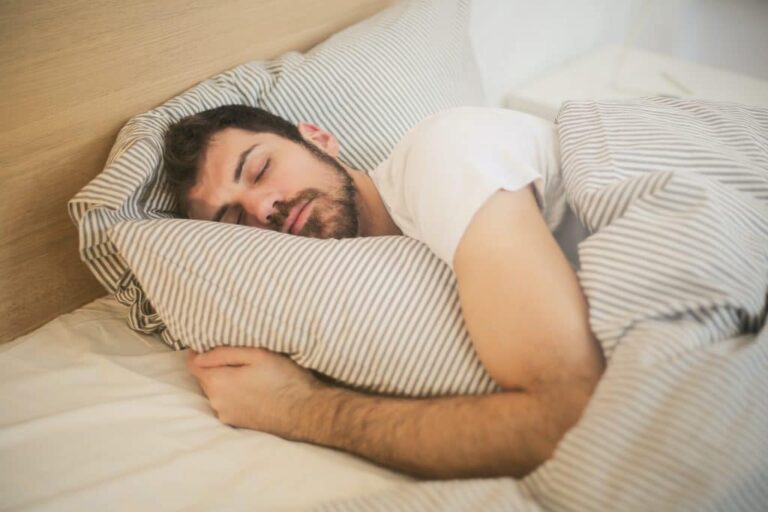Is Dementia Connected to Poor Sleep?
Like most things, sleeping is best done in moderation, and among the many effects of getting too little or too much is a new...
Posted on March 17, 2022
SleepSleep is essential to our health and well-being, yet many of us aren’t getting enough of it. Research shows that a chronic lack of sleep or getting poor quality sleep increases the risk of health problems including:
Let’s examine some of the ways we can improve our sleep hygiene and get a better night’s rest.

In this day and age, it can be difficult to pry yourself from your phone or tablet. Whether you’re binging your favorite TV show, scrolling through social media or reading the news. However, all this screen time is likely making it harder to fall asleep at night.
The light from our devices can prevent our bodies from releasing melatonin, which is a hormone that helps us fall asleep. Not to mention, much of what we consume on our devices is stimulating and not conducive for rest.
Try putting away all screens at least 30 minutes before bedtime. Instead of scrolling, use this time to meditate or read a little bit from the new novel you picked up at Wellington Square Bookshop.
If you had a week of bad sleep, it might be tempting to try and catch up on the weekend. Or maybe you want to blow off some steam by staying out late on the weekends. However, in general you’ll get better sleep if you go to bed and get up at the same time every day.
If your bedroom faces a window that picks up traffic noise or you have a floorboard that creaks in the night, consider investing in some earplugs. They are very affordable and can be found online or at most Pennsylvania drugstores.
If earplugs aren’t your thing, you could try using a fan or a white noise machine to help you fall asleep.
If you get hungry late at night, be mindful of what snacks you choose. Avoid foods with lots of sugar or anything that contains caffeine. Also make sure to avoid foods that give you heartburn, as reflux can keep you up at night.
Some issues require more than good sleep habits. If you are experiencing chronic fatigue, excessive snoring, sleep apnea or symptoms of another sleep disorder, make an appointment with a specialist. They can perform a sleep study to get more insight into what is going on and help you get a better night’s rest.
If you have more questions or wish to schedule an appointment with one of our experts, call today.
Like most things, sleeping is best done in moderation, and among the many effects of getting too little or too much is a new...
If your child snores lightly or occasionally, it’s probably not a cause for concern. However, frequent or heavy snoring may indicate that your child...
Did you spend all last night tossing and turning? TikTok wellness influencers would recommend you sip a sleepy girl mocktail—a mix of tart cherry...
Getting a good night’s sleep can be a difficult task if you’re dealing with sinus problems. Let’s look at how sinus pain and nasal...